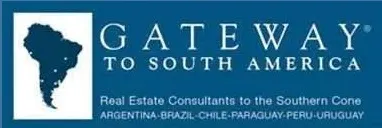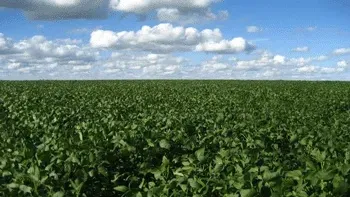BuySellBA
Administrator
Update on Argentina’s foreign farmland ownership - Gateway

Source:

 www.gatewaytosouthamerica-newsblog.com
www.gatewaytosouthamerica-newsblog.com

The Rural Land Law (Law 26,737) and the Border Security Zone Law set out certain limits on foreign ownership of rural lands that can restrict investment in the agribusiness industry.
The Rural Lands Law limits the ownership and possession of rural land by foreign individuals or companies, irrespective of the use to which the land might be dedicated. Foreign persons must receive authorization from the National Registry of Rural Lands to buy rural land. “Rural land” includes any land outside the urban sector, regardless of location or destination. “Foreign persons” are described as:
To regulate land tenures and limit foreign purchases, Argentina has Law 26,737, or the “Protection of National Control of Property, Possession or Tenure of Lands Law,” known colloquially as ‘the Land Law.’
Passed in 2011, it sets a limit of 15 per cent on foreign land ownership in specified regions of the country while requiring that “rural land with the same foreign owner must not exceed 1,000 hectares in an arable zone.”
However, a decree signed by President Mauricio Marci on June 26, 2016, modified these regulations and established “the elimination of laws that limit control of land by foreign individuals or societies to 25 per cent” and “the elimination of the maximum purchase of 1,000 hectares per core arable zone by foreign owners.”
The issuance of a business visa is subject to a request from a local company or corporation registered under the National Registry of Foreign Requiring (RENURE). The visa is granted for a renewable two-month period.
Source UK Practical Law
THE AREA OF FARMLAND IN FOREIGN HANDS IN EACH PROVINCE

A report by the National Registry of Rural Lands (RNTR) shows that the level of foreign extraction at the national level is 5.6%, or 900,000 ha less than in 2012.
Law No. 26,737 of 2012 (enacted by the National Congress) sets out the protection regime of the national domain over the property, possession or control of rural land in Argentina (Rural Land Regime Law). The Law was further regulated by Regulatory Decree No. 274/2012.
The Rural Land Law considers any purchase, transfer or assignment of possession rights of rural lands in Favour of foreign persons as foreign ownership. Foreign persons include individuals and legal entities controlled by foreign capital, subject to specific requirements set out under the law. Some exceptions for foreign persons are provided (for instance, for foreign persons with ten years of continuous, permanent and verified residence in Argentina).
The Rural Land Law states that any purchase, transfer or assignment of possession rights of rural lands in Favour of foreign persons must be previously authorized by the Argentine Registry of Rural Land.
The principal restrictions under the Law are that:
Foreign persons (physical or legal) cannot own or possess more than 15% of the rural lands in Argentina.
Foreign persons (physical or legal) of the same nationality cannot own or possess more than 30% of those 15%.
Foreign persons (physical or legal) can only own up to 1,000 hectares in the nucleus area (defined under Decree No. 274/2012) or the equivalent surface in Argentina, depending on the jurisdiction.
Foreign persons (physical or legal) cannot own or possess rural lands containing or bordering significant and permanent bodies of water unless specifically authorized.
Foreign individuals or legal entities cannot own or possess rural lands in border security zones unless specifically authorized (see below, Authorizations required for border areas).
According to the Rural Land Law, all acts executed violating the Protection Regime Law are absolutely and irrevocably null and void and create no right of indemnification in Favour of the authors of and participants in the illegal act.
The Rural Land Law also provides that the Argentine Registry of Rural Land can initiate administrative proceedings to investigate possible breaches of the Law. The investigation results must be notified to the potential violator, following which it has ten business days to collect and submit evidence. The National Director of the National Register of Rural Land will analyze the incident and apply the appropriate penalty (if any).
The penalties vary between:
Warnings.
Fines.
Special disqualification orders from six months to two years.
Authorizations required for border areas
The purchase of real estate property by foreign persons in frontier security zones (between 150 kilometres from terrestrial borders and 50 kilometres from shorelines) is subject to a prior and special authorization issued by the National Commission for Security Zones.
Note: The traditional way to get around these restrictions was to set up a front company or individual to buy the property that complies with the regulations. Our advice is not to consider this as the risk of forfeiture is too significant if you are caught.
Also, note some areas within the provinces may already exceed the permitted percentages even if the overall Province does not.
Also, with elections later this month, if the opposition wins, as it looks like, they might remove many of these restrictions, and everything might change.
Be careful and ask for legal advice before jumping into the deep end.
www.buysellba.com

Source:

Update on Argentina's foreign farmland ownership
The Rural Land Law (Law 26,737) and the Border Security Zone Law set out certain limits on foreign ownership of rural lands that can restrict investment in the agribusiness industry. The Rural Lands Law limits the ownership and possession of rural land by foreign individuals or companies...
 www.gatewaytosouthamerica-newsblog.com
www.gatewaytosouthamerica-newsblog.com

The Rural Land Law (Law 26,737) and the Border Security Zone Law set out certain limits on foreign ownership of rural lands that can restrict investment in the agribusiness industry.
The Rural Lands Law limits the ownership and possession of rural land by foreign individuals or companies, irrespective of the use to which the land might be dedicated. Foreign persons must receive authorization from the National Registry of Rural Lands to buy rural land. “Rural land” includes any land outside the urban sector, regardless of location or destination. “Foreign persons” are described as:
- Foreign individuals.
- Entities controlled by foreign individuals or entities.
- Trusts that have more than 25% of foreign (individuals or entities) beneficiaries.
- Joint ventures in which foreign persons participate in a percentage more significant than the one authorized by the Rural Lands Law.
- Foreign public entities.
- Simple associations controlled by foreign individuals or entities.
- Have ten years of continuous, permanent and proven residence in the country.
- Have Argentine children and demonstrate a permanent, continuous and proven residence in the country for five years.
- Are united in marriage with an Argentine citizen for five years before the constitution or transmission of the relevant rights and demonstrate continuous, permanent and proven residence in the country for the same period.
To regulate land tenures and limit foreign purchases, Argentina has Law 26,737, or the “Protection of National Control of Property, Possession or Tenure of Lands Law,” known colloquially as ‘the Land Law.’
Passed in 2011, it sets a limit of 15 per cent on foreign land ownership in specified regions of the country while requiring that “rural land with the same foreign owner must not exceed 1,000 hectares in an arable zone.”
However, a decree signed by President Mauricio Marci on June 26, 2016, modified these regulations and established “the elimination of laws that limit control of land by foreign individuals or societies to 25 per cent” and “the elimination of the maximum purchase of 1,000 hectares per core arable zone by foreign owners.”
Are there any visas, permits or other requirements for foreign individuals entering Argentina for business purposes?
Immigration policy is set out under Law 25,871. Under section 20 of this law, foreigners can be admitted under either “permanent residence”, “temporary residence” or “transitorily residence”. The type of residence depends on the activity to be developed in Argentina and the individual’s status. A business visa is usually required to conduct business or commercial activities under Regulation No 1171/2010 from the National Migratory Direction.The issuance of a business visa is subject to a request from a local company or corporation registered under the National Registry of Foreign Requiring (RENURE). The visa is granted for a renewable two-month period.
Source UK Practical Law
THE AREA OF FARMLAND IN FOREIGN HANDS IN EACH PROVINCE
A report by the National Registry of Rural Lands (RNTR) shows that the level of foreign extraction at the national level is 5.6%, or 900,000 ha less than in 2012.
Ley de Tierras or Farmland Law
Rural land ownership by foreign personsLaw No. 26,737 of 2012 (enacted by the National Congress) sets out the protection regime of the national domain over the property, possession or control of rural land in Argentina (Rural Land Regime Law). The Law was further regulated by Regulatory Decree No. 274/2012.
The Rural Land Law considers any purchase, transfer or assignment of possession rights of rural lands in Favour of foreign persons as foreign ownership. Foreign persons include individuals and legal entities controlled by foreign capital, subject to specific requirements set out under the law. Some exceptions for foreign persons are provided (for instance, for foreign persons with ten years of continuous, permanent and verified residence in Argentina).
The Rural Land Law states that any purchase, transfer or assignment of possession rights of rural lands in Favour of foreign persons must be previously authorized by the Argentine Registry of Rural Land.
The principal restrictions under the Law are that:
Foreign persons (physical or legal) cannot own or possess more than 15% of the rural lands in Argentina.
Foreign persons (physical or legal) of the same nationality cannot own or possess more than 30% of those 15%.
Foreign persons (physical or legal) can only own up to 1,000 hectares in the nucleus area (defined under Decree No. 274/2012) or the equivalent surface in Argentina, depending on the jurisdiction.
Foreign persons (physical or legal) cannot own or possess rural lands containing or bordering significant and permanent bodies of water unless specifically authorized.
Foreign individuals or legal entities cannot own or possess rural lands in border security zones unless specifically authorized (see below, Authorizations required for border areas).
According to the Rural Land Law, all acts executed violating the Protection Regime Law are absolutely and irrevocably null and void and create no right of indemnification in Favour of the authors of and participants in the illegal act.
The Rural Land Law also provides that the Argentine Registry of Rural Land can initiate administrative proceedings to investigate possible breaches of the Law. The investigation results must be notified to the potential violator, following which it has ten business days to collect and submit evidence. The National Director of the National Register of Rural Land will analyze the incident and apply the appropriate penalty (if any).
The penalties vary between:
Warnings.
Fines.
Special disqualification orders from six months to two years.
Authorizations required for border areas
The purchase of real estate property by foreign persons in frontier security zones (between 150 kilometres from terrestrial borders and 50 kilometres from shorelines) is subject to a prior and special authorization issued by the National Commission for Security Zones.
Note: The traditional way to get around these restrictions was to set up a front company or individual to buy the property that complies with the regulations. Our advice is not to consider this as the risk of forfeiture is too significant if you are caught.
Also, note some areas within the provinces may already exceed the permitted percentages even if the overall Province does not.
Also, with elections later this month, if the opposition wins, as it looks like, they might remove many of these restrictions, and everything might change.
Be careful and ask for legal advice before jumping into the deep end.
www.buysellba.com

